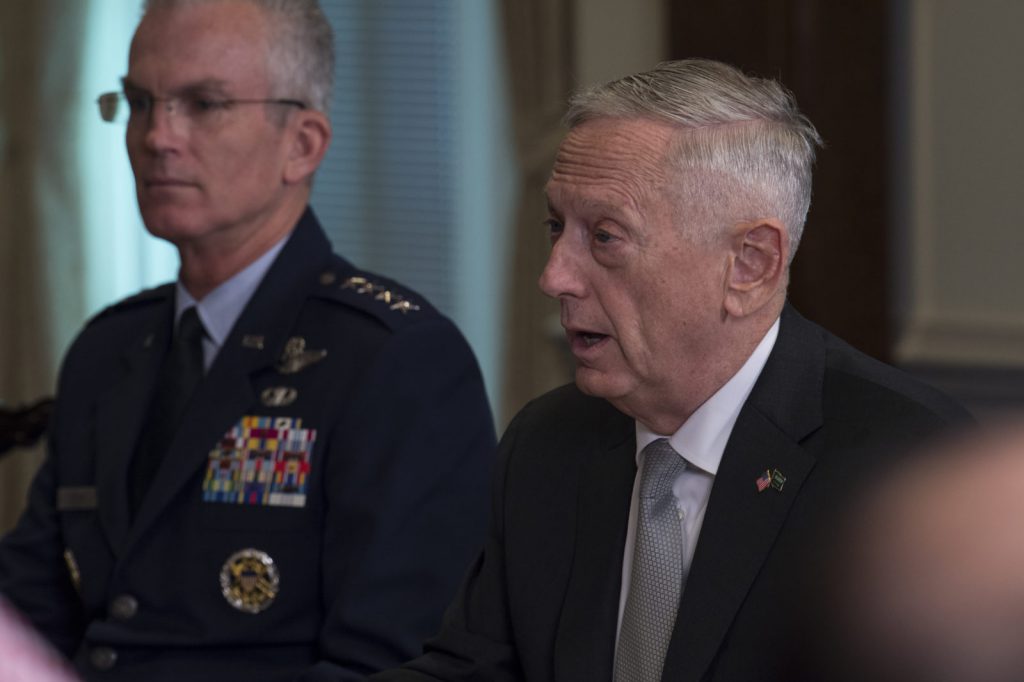
Published December 21, 2018
Defense Secretary Jim Mattis’s resignation confirms that President Trump is now forging foreign policy essentially on his own. Stemming on its face from Trump’s decision, announced on Twitter, to remove U.S. military forces from Syria, in fact Trump has signaled displeasure with Mattis and the bipartisan foreign policy consensus that he championed. In the months ahead, conservatives will increasingly be torn between loyalty to Trump and their longtime support for that consensus.
Trump’s mistrust of American global engagement has long been hiding in plain view. He questioned U.S. defense agreements with allies as early as the 1980s, and he did nothing to hide his doubt about those arrangements on the campaign trail. It now appears he is ready to act upon these deeply held instincts.
While certainly breaking with modern conservatism, Trump’s beliefs hark back to pre-World War II Republicanism. Back then, the GOP favored immigration restriction, tariffs and keeping the United States out of foreign conflicts. Trump’s three most important deviations with current GOP orthodoxy, then, are actually a return to the old orthodoxy.
This new “back to the future” foreign policy has been frequently presaged throughout the administration. A New York Times article reported in great detail about a meeting Mattis hosted in July 2017 in the secure Pentagon room known as “the Tank.” According to that report, Trump listened calmly as Mattis and others explained the U.S. web of military and economic alliances and associations. When they were done, Trump is said to have replied: “This is exactly what I don’t want.”
Many American conservatives, and many more in Trump’s blue-collar base, would likely agree. The debacle in Iraq, the 17-year Afghanistan conflict and nearly 20 years of continuous U.S. military engagement have left many people weary. Trillions of dollars spent, thousands of lives lost, and for what? When Trump questions the conservative foreign policy consensus, he is far from alone in his party.
I don’t think Trump is right about Syria, largely because Russia is directly involved there itself. No U.S. ally is going to risk military confrontation with the Russian Bear, which gives Putin great latitude to now move from using the Russian military to prop up the Syrian regime and combat the Islamic State to using it to pressure U.S. allies across the board. But that doesn’t mean Trump isn’t asking the right questions about U.S. foreign policy.
We built the global web of engagement only after the Soviets showed they could not be trusted following World War II. The edifice was constructed with the understanding that the United States’ own security would be at risk from a globally minded, aggressive power unless it abandoned its traditional isolationism. The fall of the Soviet Union removed the justification for that engagement, but old habits die hard, and our allies had grown dependent upon U.S. power. The old ways trudged forward of their own momentum.
Now we live in a different age. Our adversaries are growing in might, compared with the 1990s. Our relative economic power has been diminished by globalization and the rise of China. Meanwhile, our allies are richer than they were 70 years ago, when their battered economies could not produce the militaries necessary to stand up to the Soviets on their own.
What is the right formula for this time? I don’t share Trump’s unvarnished opposition to the postwar global order, but I do think he often asks the right questions. Our allies need to do more. Our military needs to be used less and have its readiness restored so it can fight real, large-scale wars without worrying that it doesn’t have enough working planes, ships and machines to do the job. Many problems in the world need U.S. power to fix, but many don’t. Trump’s breaks with consensus will likely intensify (Afghanistan, anyone?), and that will force defenders of the bipartisan foreign policy consensus to rethink the nature of that order. It’s a debate that is long past due.
Henry Olsen is a senior fellow at the Ethics and Public Policy Center, editor at Unherd.com and author of “The Working Class Republican: Ronald Reagan and the Return of Blue-Collar Conservatism.”




